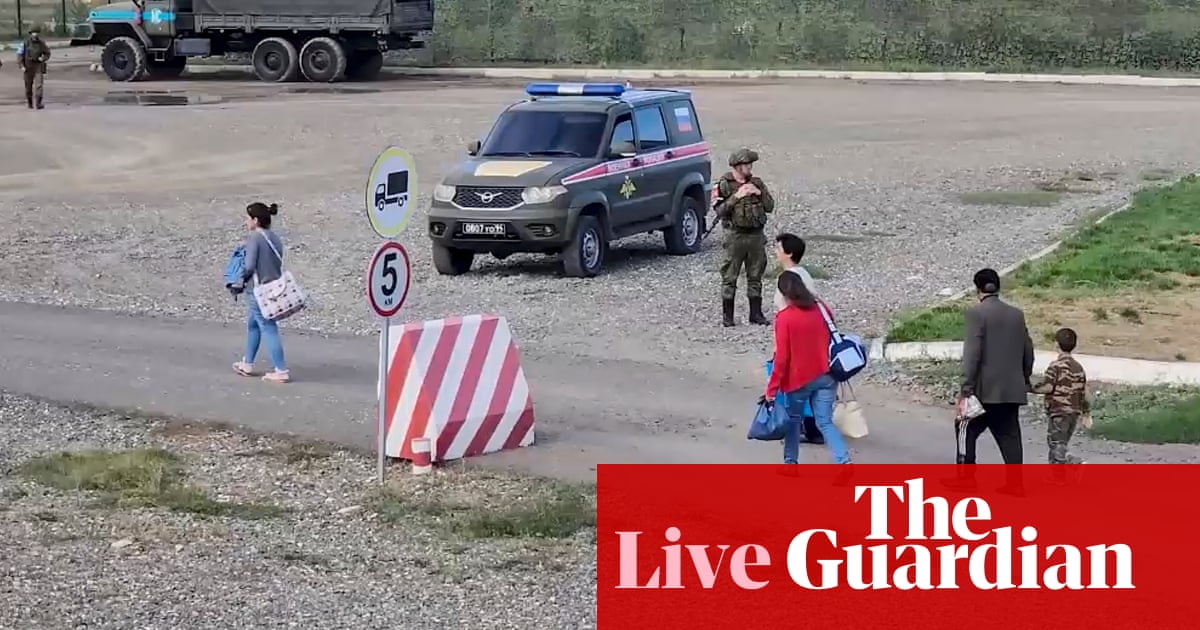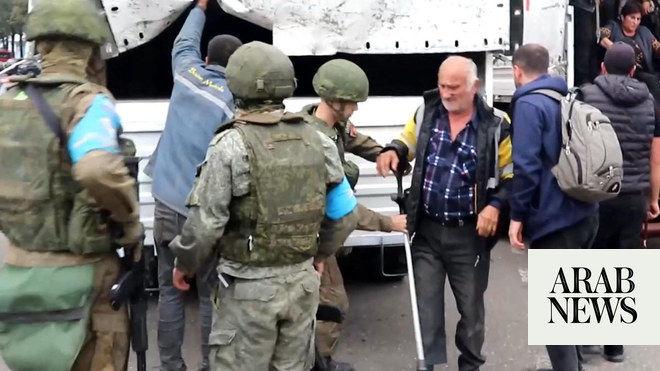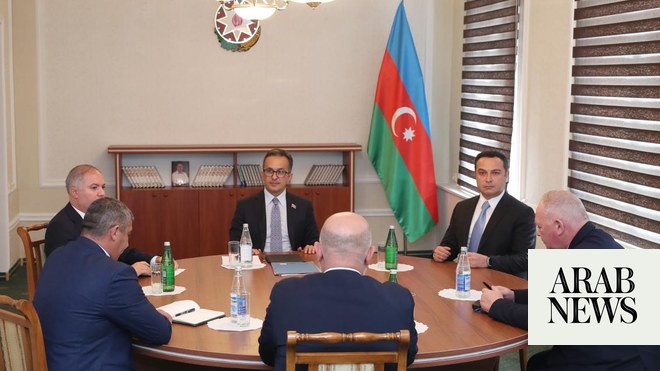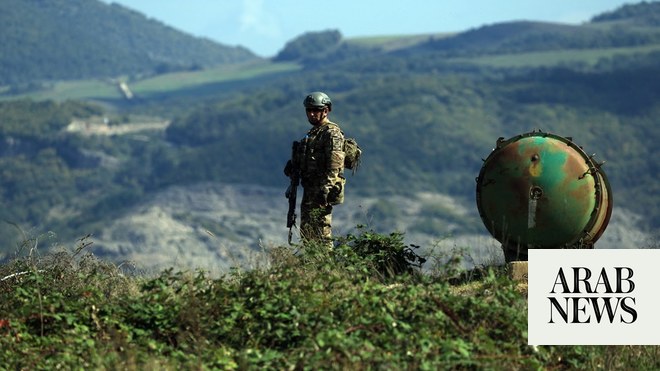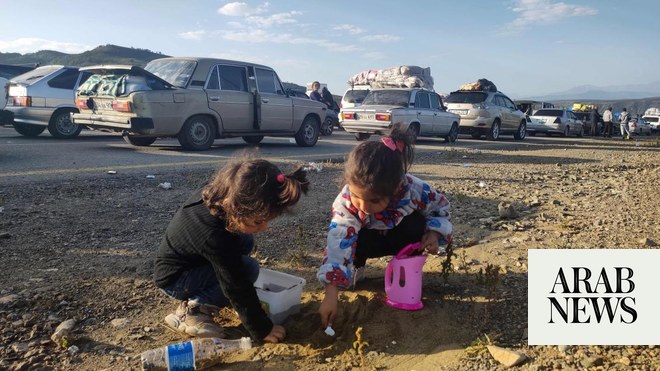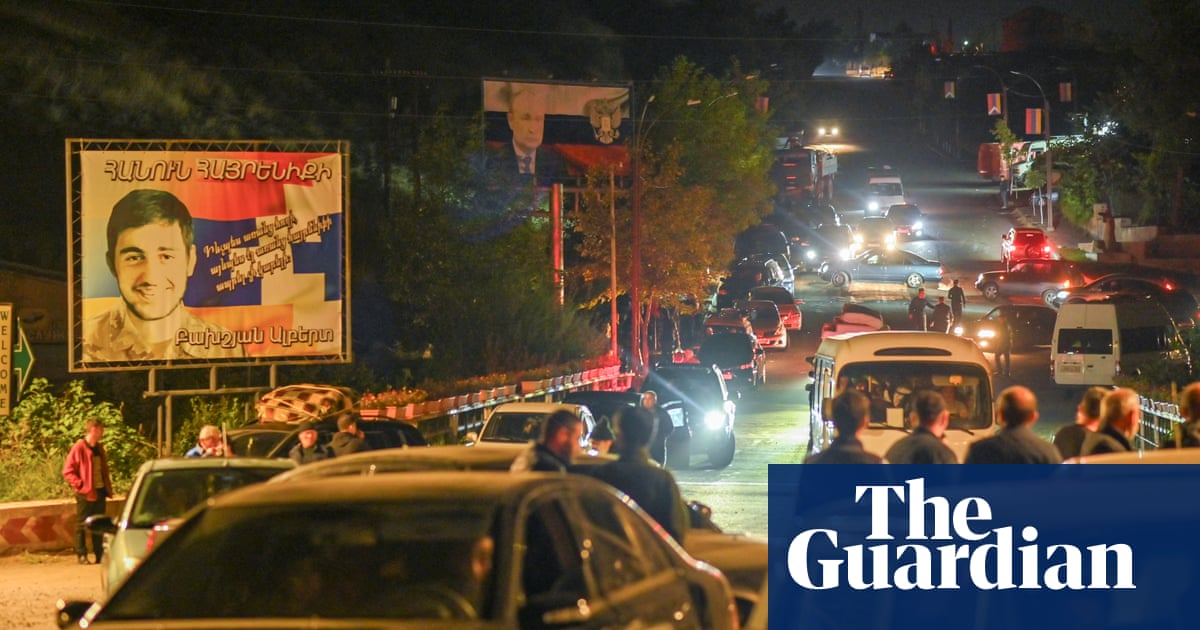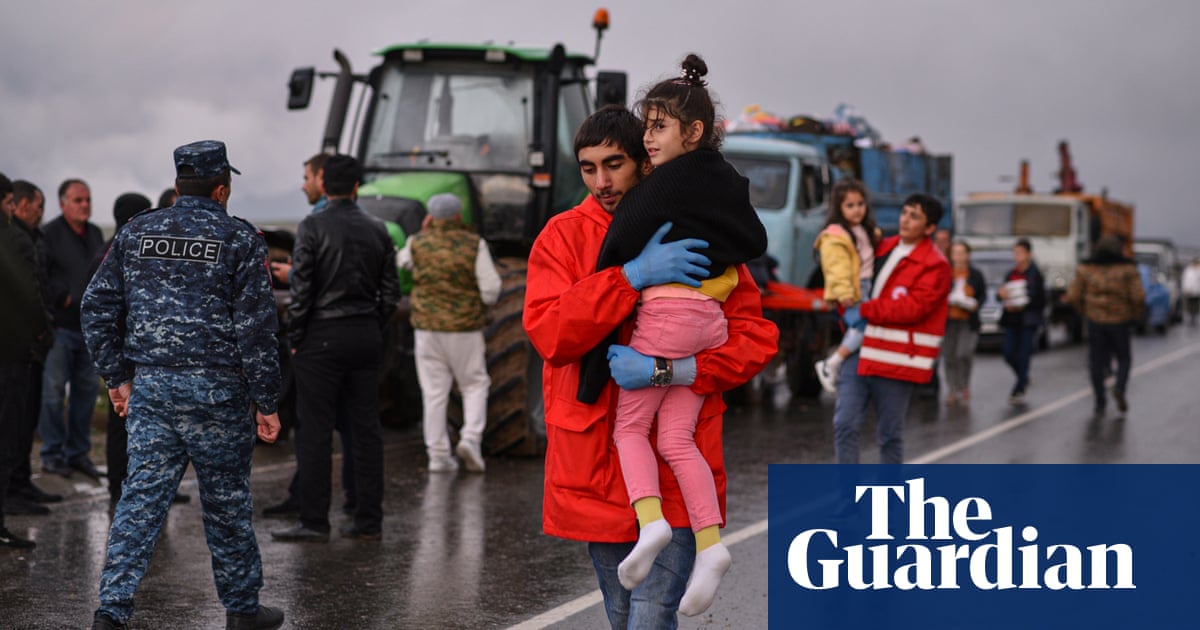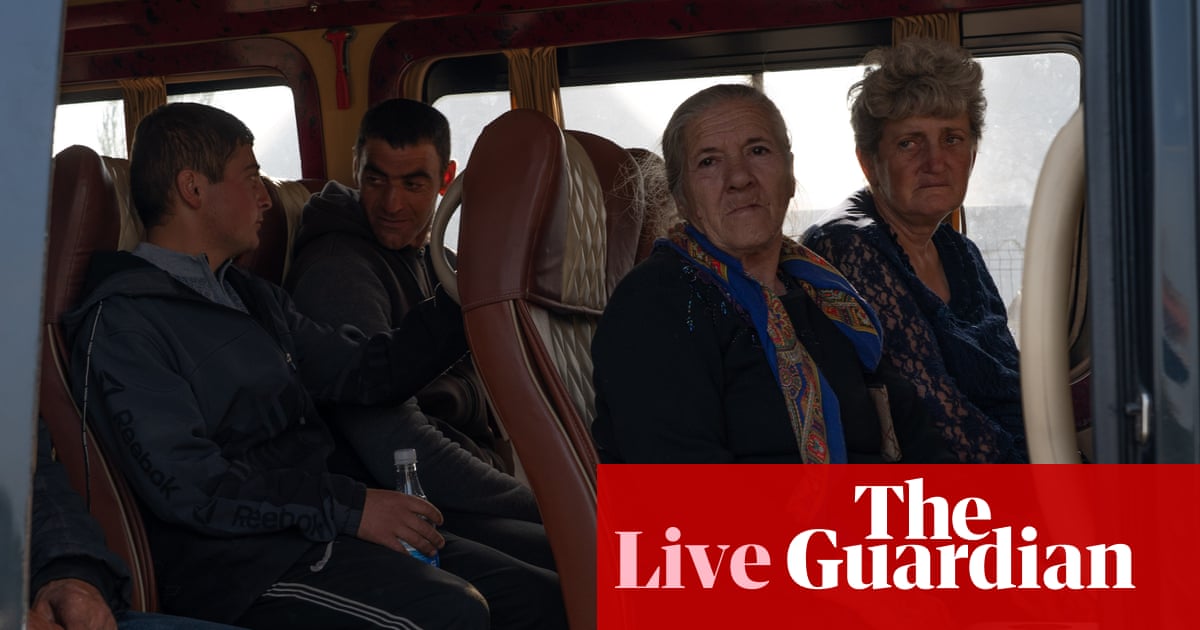
Leading EU parliamentarian warns of "serious consequences" if Armenians coerced
David McAllister, the chair of the European parliament’s foreign affairs committee, has told the Guardian that the EU should impose serious consequences if there are attempts to remove Karabakh Armenians from their homes.
“This weekend’s developments in Nagorno-Karabakh underscore the serious concern for the Armenian population there,” McAllister said.
“The reported blockages of humanitarian aid corridors, amid Azerbaijan’s public reassurances for the safety of the Armenians of Nagorno-Karabakh, do not contribute to the de-escalation of the situation. Instead, they will likely lead to the expulsion of the local population,” he warned.
The centre-right German politician also cautioned that “the ceasefire as well as the meeting between representatives of the Karabakh Armenians and the Azerbaijani government in Yevlakh were first steps, but they cannot remain the only ones.
“Azerbaijan must grant access to humanitarian organisations into the region, and guarantee the living standards, in order to credibly underline its commitment to lasting peace.”
The EU, McAllister added, “should make it clear that any attempt to remove or coerce the Armenian population from the Nagoro-Karabakh region will have serious consequences for our relations with Azerbaijan”.
Summary of the day
6,650 people have crossed into Armenia from Nagorno-Karabakh.
An EU diplomatic adviser will host a meeting with Armenian and Azerbaijani representatives tomorrow.
The Turkish leader, Recep Tayyip Erdoğan, met with Azerbaijan’s president, Ilham Aliyev.
Azerbaijan’s foreign ministry criticised the French president, Emmanuel Macron, for raising concerns about the situation in the region.
The German government said that it is very concerned about ethnic Armenians in Nagorno-Karabakh.
David McAllister, the chair of the European parliament’s foreign affairs committee, said the EU should impose serious consequences if there are attempts to remove Karabakh Armenians from their homes.
Marina Kaljurand, the chair of the European parliament’s delegation for relations with the south Caucasus, has said she sees two trends as “very disturbing”: ethnic Armenians fearfully wanting to leave Nagorno-Karabakh and anti-government demonstrations in Armenia.
In a phone interview with the Guardian, Kaljurand expressed concern about the situation facing Armenians in the area. “I understand their fear,” she said, adding that she hoped humanitarian organisations would be able to access the region.
Speaking of protests in Yerevan against Armenia’s prime minister, Nikol Pashinyan, Kaljurand – an Estonian member of the Socialists and Democrats group – said the Armenian leader “has made it very clear that he does not see the future of his country with Russia” and “wants western orientation”.
Europe, she said, should step up to support the Armenian government.
Leading EU parliamentarian warns of "serious consequences" if Armenians coerced
David McAllister, the chair of the European parliament’s foreign affairs committee, has told the Guardian that the EU should impose serious consequences if there are attempts to remove Karabakh Armenians from their homes.
“This weekend’s developments in Nagorno-Karabakh underscore the serious concern for the Armenian population there,” McAllister said.
“The reported blockages of humanitarian aid corridors, amid Azerbaijan’s public reassurances for the safety of the Armenians of Nagorno-Karabakh, do not contribute to the de-escalation of the situation. Instead, they will likely lead to the expulsion of the local population,” he warned.
The centre-right German politician also cautioned that “the ceasefire as well as the meeting between representatives of the Karabakh Armenians and the Azerbaijani government in Yevlakh were first steps, but they cannot remain the only ones.
“Azerbaijan must grant access to humanitarian organisations into the region, and guarantee the living standards, in order to credibly underline its commitment to lasting peace.”
The EU, McAllister added, “should make it clear that any attempt to remove or coerce the Armenian population from the Nagoro-Karabakh region will have serious consequences for our relations with Azerbaijan”.
6,650 people crossed into Armenia from Nagorno-Karabakh
As of 13:00 GMT, 6,650 people had crossed into Armenia from Nagorno-Karabakh, Sputnik Armenia reported citing the Armenian government, according to Reuters.
Awkward for Europe?
The situation in Nagorno-Karabakh has raised questions about how much influence western capitals actually have in the region.
“I do not think the situation in Nagorno-Karabakh is an embarrassment for Europe,” said one senior European diplomat, adding that “the whole geopolitics played out there”.
Nevertheless, the diplomat noted that “it is a very fragile situation” and that in their view, now more than ever, Europe needs “to stay with Armenia”.
A senior EU official is set to convene a meeting tomorrow with representatives of Armenia and Azerbaijan, along with officials from France and Germany.
Erdoğan congratulates Azerbaijan
Turkey’s president, Recep Tayyip Erdoğan, said today that Azerbaijan’s victory opened a window of opportunity for normalisation in the region, Reuters reports.
Speaking alongside Azerbaijan’s president, Ilham Aliyev, the Turkish leader said he hoped Armenia would take “sincere steps” to grab this opportunity for stability and peace in the region.
Erdoğan also said Azerbaijan’s success in the Karabakh operation was a source of pride for Turkey, and congratulated the Azeri army for showing “sensitivity” to civilians in the region, according to Reuters.
Turkey is an obstacle to Nato helping to de-escalate tensions in Nagorno-Karabakh, a senior European diplomat said today.
The diplomat, who spoke on condition of anonymity because they are not authorised to discuss the matter, said the western military alliance could play a “more active part” due to the humanitarian situation and impact on euroatlantic security.
But, they said, Nato is “paralysed” when it comes to Nagorno-Karabakh due to member country Turkey, which supports Azerbaijan.
Asked if Nato or European governments have any leverage in the ongoing crisis, a second senior European diplomat merely quipped: “not really.”
More photos from Armenia, by the Guardian’s Christopher Cherry.
Share your experience
If you have been affected by the situation in Nagorno-Karabakh we would like to hear from you. We are also interested in speaking to people in Armenia about the situation. You can get in touch by messaging us or filling in the form below.
Samantha Power, the administrator of the United States Agency for International Development (USAID), has arrived in Armenia.
Azerbaijan responsible for ensuring Karabakh Armenians" rights, Luxembourg says
Luxembourg’s foreign minister, veteran diplomat Jean Asselborn, told the Guardian today that his country “condemns in the strongest possible terms Azerbaijan’s military operation in Nagorno-Karabakh”.
“Azerbaijan bears the responsibility to guarantee and ensure the full respect of the rights and security of Karabakh Armenians, including their right to live in their homes in dignity,” Asselborn said in an email.
“Azerbaijan must further abide by its international commitments and allow unimpeded humanitarian access to the population in need,” he said, calling for “Baku and Karabakh Armenians to engage in a comprehensive and transparent dialogue”.
“We urge Azerbaijan and Armenia to resume, under the auspices and support of the EU and other partners, negotiations on all pending issues with the aim of concluding a peace treaty,” he added.
German government concerned about ethnic Armenians
The German government is very concerned about ethnic Armenians in Nagorno-Karabakh, a foreign ministry spokesperson said today, Reuters reported.
The spokesperson said Azerbaijan has a responsibility to protect the human rights of ethnic Armenians.
More photos from the Guardian’s Christopher Cherry, who is on the ground in Armenia.




